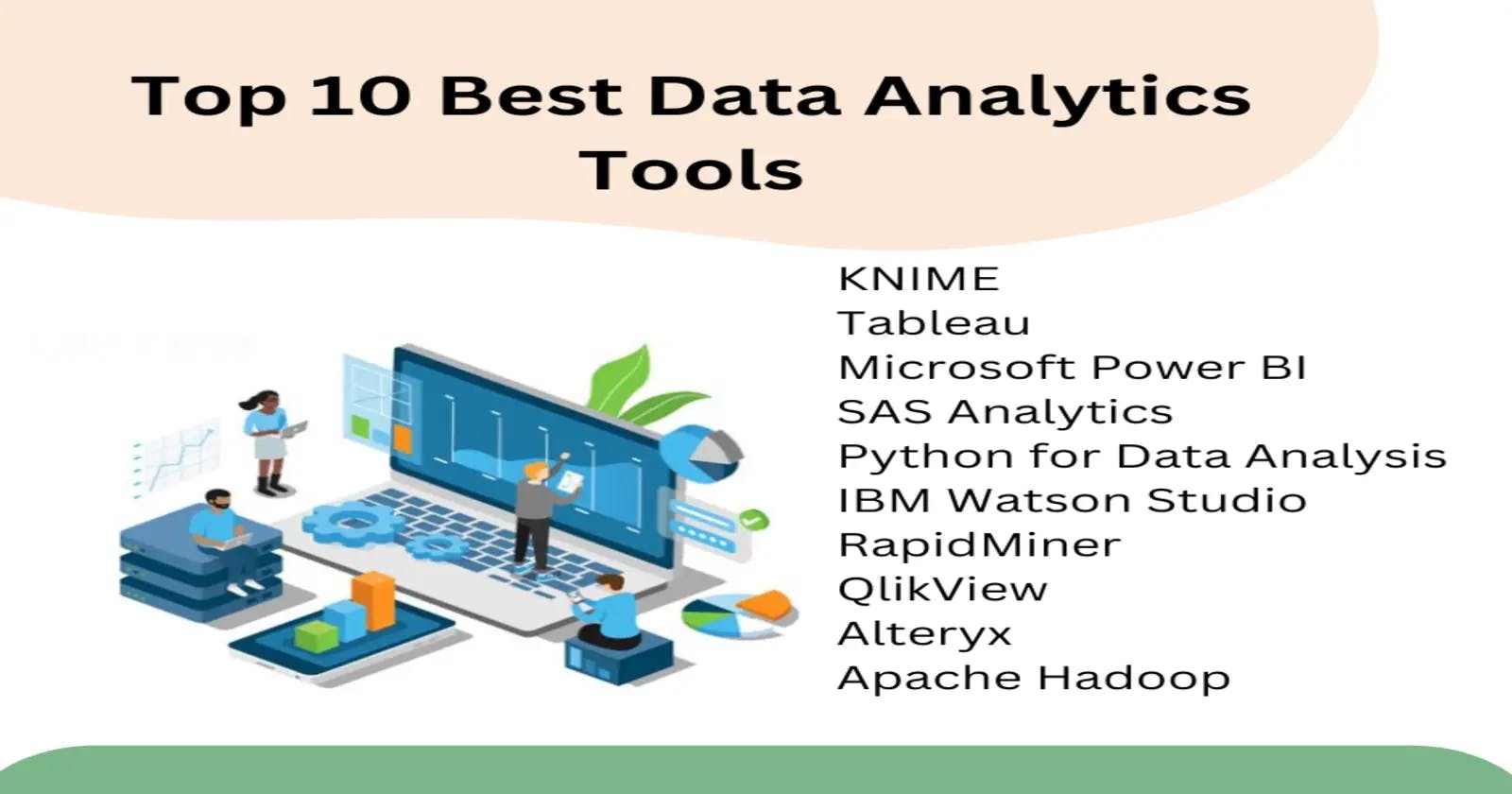In today's data-driven world, the need for robust data analytics tools has become paramount. Businesses across industries are leveraging these tools to extract valuable insights, make informed decisions, and stay ahead of the competition. In this article, we will delve into the top 10 data analytics tools that are shaping the landscape of data analysis.
Importance of Data Analytics
Before we dive into the specifics, it's crucial to understand why data analytics is essential for businesses. Data analytics enables organizations to uncover patterns, trends, and correlations within their data, providing a solid foundation for strategic planning and decision-making.
What are Data Analytics Tools?
Data analytics tools are software applications designed to analyze and interpret complex datasets, extracting valuable insights and supporting data-driven decision-making. These tools encompass a range of functionalities, including data visualization, statistical analysis, and machine learning algorithms. Popular examples include Tableau, Power BI, and Google Analytics. They empower organizations to uncover patterns, trends, and correlations within their data, aiding in strategic planning, performance evaluation, and problem-solving. With intuitive interfaces and powerful backend capabilities, data analytics tools are essential for businesses seeking a competitive edge by leveraging the vast amounts of information generated in today's digital age.
Criteria for Selecting Data Analytics Tools
Choosing the right data analytics tool can be a daunting task. Factors such as scalability, ease of use, and integration capabilities must be considered. Businesses should also evaluate whether the tool aligns with their specific industry needs and regulatory requirements.
Top 10 Data Analytics Tools
1. KNIME
KNIME is not just a data analytics tool; it's a comprehensive platform that empowers users to harness the full potential of their data. With its user-friendly interface, extensive capabilities, and a vibrant community, KNIME is a valuable asset for anyone navigating the intricate world of data analytics.
2. Tableau: Transforming Data into Visual Masterpieces
For those who believe in the power of visualization, Tableau is the go-to tool. This analytics platform allows you to transform raw data into interactive and insightful visualizations, making complex data easily understandable. Dive into the world of data aesthetics with Tableau.
3. Microsoft Power BI: Empowering Businesses with Intelligence
Microsoft Power BI is a game-changer for businesses seeking actionable intelligence. With its seamless integration with Microsoft products and intuitive dashboards, it enables users to make data-driven decisions effortlessly. Harness the power of intelligence with Microsoft Power BI.
4. SAS Analytics: A Pioneer in Advanced Analytics
When it comes to advanced analytics, SAS Analytics has been a trailblazer for decades. Its comprehensive suite of tools caters to predictive modeling, machine learning, and statistical analysis, making it an indispensable choice for data professionals venturing into the realm of advanced analytics.
5. Python for Data Analysis: Coding Excellence in Analytics
Python has emerged as a preferred language for data analysis, and rightly so. With libraries like Pandas and NumPy, Python simplifies data manipulation and analysis. Embrace the coding excellence of Python for data analysis that goes beyond the ordinary.
6. IBM Watson Studio: AI-Driven Analytics at Your Fingertips
IBM Watson Studio takes data analytics to the next level with its artificial intelligence capabilities. From data exploration to model deployment, this tool empowers users to infuse AI into their analytics workflow seamlessly. Unleash the potential of AI with IBM Watson Studio.
7. RapidMiner: Accelerating Data Science Workflows
RapidMiner streamlines data science workflows with its user-friendly interface and drag-and-drop functionality. This tool is designed to make the entire data science process, from data preparation to model deployment, more efficient and accessible. Supercharge your data science endeavors with RapidMiner.
8. QlikView: Associative Data Modeling for Deeper Insights
QlikView stands out with its unique approach to associative data modeling. By establishing connections between data points, it enables users to uncover hidden insights and relationships within their datasets. Experience the power of associative data modeling with QlikView.
9. Alteryx: Revolutionizing Data Blending and Preparation
Alteryx simplifies the often complex and time-consuming process of data blending and preparation. With its drag-and-drop interface, even non-technical users can blend, clean, and analyze data effortlessly. Embrace efficiency in data preparation with Alteryx.
10. Apache Hadoop: Tackling Big Data Challenges Head-On
When it comes to handling massive datasets, Apache Hadoop is the go-to solution. This open-source framework allows for the distributed processing of large data sets across clusters, making it an essential tool for tackling big data challenges. Conquer the world of big data with Apache Hadoop.
Conclusion
In conclusion, the realm of data analytics tools is vast and diverse, offering solutions for businesses of all sizes and industries. Each tool has its unique strengths, and the choice depends on the specific requirements and goals of the organization. Whether it's the user-friendly Tableau, the analytical prowess of SAS, or the programming flexibility of R and Python, there's a tool for every analytical need.
If you are looking your career in data analytics, then you should opt for online data analytics courses.
